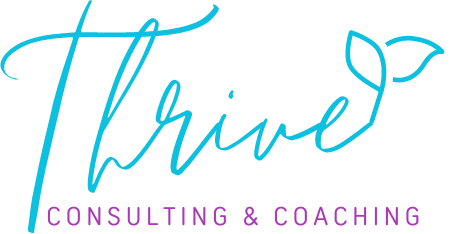A striking 75% of women executives in any discipline have faced imposter syndrome during their careers.
That nagging feeling of self-doubt and fear someone will expose you as a fraud can hold back your professional growth and personal satisfaction. This happens even with clear proof of success and ability. High-achieving women often credit their wins to luck instead of skill, which makes them pass up leadership roles they truly deserve.
Something doesn’t add up: women still doubt themselves even though research shows women leaders make workplaces better. Teams work better together, employees deepen their commitment, and workplace fairness gets a boost when women lead. Women now start businesses faster than ever before in this country. Women of color lead this trend as the fastest-growing group in the entrepreneurial market.
You’re not alone if you’ve ever doubted your abilities despite your achievements or felt like someone would eventually “find you out.” My work with countless professional women who share these feelings shows there’s hope ahead. In this piece, I’ll share proven ways to push past imposter syndrome and build real confidence that comes from within, not from what others think. [-5]
Why Imposter Syndrome Affects So Many Women
Professional women face imposter syndrome due to real social structures and workplace dynamics that breed self-doubt. My research has revealed several factors behind its widespread presence among women in professional settings.
Cultural expectations and gender roles
Society sends vastly different messages about success and capability to boys and girls. Men learn to link their achievements to their innate abilities, while women credit outside factors like luck or hard work. Deep-rooted stereotypes paint men as natural leaders with better rational thinking and women as emotional and passive. These gender-based expectations create a disconnect when women excel in traditionally male-dominated fields—people often see their success as unusual rather than earned.
Lack of representation in leadership
Leadership’s gender gap sends a discouraging message. Women make up almost half the entry-level workforce but hold just 21% of C-suite positions. The political landscape shows similar patterns, with women holding 27.2% of parliamentary seats worldwide. All but one of these countries have male Heads of State. This absence of female leaders makes it hard to imagine women in power roles and feeds their self-doubt.
The pressure to prove yourself constantly
Women deal with unique scrutiny that fuels imposter feelings. The numbers tell a concerning story:
- Women score their performance 33% lower than equally skilled male colleagues
- Men seek jobs after meeting 60% of requirements, while women wait until reaching 100%
- External factors hold back 56% of executive women from meeting expectations
The feedback women receive tends to be vague and inconsistent. It focuses on communication style rather than actual performance. A study of 200 performance reviews found evaluators used “abrasive” only to describe women, while calling men “visionary”.
Women exhaust themselves by constantly justifying their presence. They overwork to make up for perceived shortcomings, which makes imposter feelings worse.
Recognizing the Signs in High-Achieving Women
Women who achieve great things need to understand how imposter syndrome shows up in their lives. These behaviors follow predictable patterns that can substantially affect their careers and well-being.
Perfectionism and fear of failure
Professional women often fall into the perfectionist trap. This mindset goes beyond healthy ambition and pushes them to deliver flawless work every single time. Research shows female students are more afraid of failure than male students in 56 out of 59 countries. This anxiety runs deeper among high achievers. The pressure to break gender stereotypes and meet society’s expectations of successful women makes things worse. The cycle becomes self-feeding – excellent results from over-preparation only strengthen their need to keep that perfect record.
Downplaying accomplishments
High-achieving women tend to dismiss proof of their abilities and expertise. They don’t own their success but credit it to luck, scoring errors, or others’ poor judgment. Men usually point to their natural talents, while women trace their success to external factors or extreme effort. This behavior sticks around even in supportive workplaces. Women can easily talk about their company’s achievements but minimize their role in those wins. Many describe their career growth as something that “just happened” instead of highlighting their skills that earned promotions.
Overworking to feel worthy
The nagging fear that “my stupidity will be found out” pushes many women to work too hard. This creates an exhausting pattern: worry about intelligence leads to hard work, then good performance, brief relief, and back to self-doubt. About 81% of women executives believe they put more pressure on themselves than men do. This excessive work comes from anxiety rather than passion, and it often leads to burnout.
Avoiding new opportunities
Self-doubt makes many successful women shy away from situations where they might fail. This caution can make them step back from career opportunities too soon. It creates a tough situation – their fear of failure blocks their growth. Many talented women wait until everything seems perfect before starting projects. They keep polishing but never launch. They might look like go-getters on the surface, but deep down, their self-doubt holds them back from reaching their full potential.
Proven Strategies to Beat Imposter Syndrome
You need consistent practice and intentional strategies to overcome imposter syndrome. I’ve worked with hundreds of female leaders and found some proven ways to build real confidence and get rid of self-doubt.
Reframe negative self-talk
Your inner critic feeds those imposter feelings. Start by spotting when these thoughts pop up and challenge them head-on. Switch “I’m not qualified” to “I am skilled and continuously growing.” This helps rewire your mindset toward self-compassion. Your negative thoughts will lose their grip over time, and confidence will naturally grow.
Track and celebrate your wins
Women dealing with imposter syndrome often brush off their achievements as luck. Start a “brag file” to document your accomplishments, good feedback, and milestones. Taking time to celebrate both big and small wins reinforces what you’re capable of and fights back against negativity. Pull out this file whenever doubt starts creeping in – it’s solid proof of your abilities.
Set realistic goals and boundaries
Your confidence grows when you hit achievable goals. Take those big objectives and break them into smaller, doable tasks that match your strengths and values. Clear boundaries help prevent the overwork that usually comes with imposter syndrome. This balanced approach keeps you motivated without burning out.
Practice self-compassion
Kristin Neff’s work points to three key elements: mindfulness (seeing thoughts without judgment), self-kindness (being gentle with yourself during tough times), and common humanity (knowing everyone faces challenges). This isn’t about sitting back – it’s about accepting yourself while taking action because you care about your wellbeing.
Seek mentorship and community support
Three out of four high-performing executive women deal with imposter syndrome. Mentorship gives you a fresh point of view and validates your experience. A strong support network shows you these feelings are universal, not personal failures. The people around you who believe in your abilities can provide that outside perspective needed to balance those inner doubts.
Building Authentic Confidence as a Female Leader
Authentic confidence goes beyond just feeling good—it’s about leading with genuine strength. Female leaders need intentional practices based on self-knowledge and authenticity to build confidence that stands up to imposter syndrome.
Line up with your personal values
Your personal values create a solid foundation that makes leadership work. Success and fulfillment come when you honor these values, while compromising them leads to anxiety and frustration. This internal compass guides your decisions and shapes your team’s culture. Leaders who stay true to their values make decisions more easily, communicate vision better, and inspire their teams naturally. Write down your values in a formal statement, then look at your actions, decisions, and plans through this perspective.
Lead with empathy and self-awareness
Self-awareness serves as the life-blood of authentic leadership. Yes, it is the fundamental leadership skill of the 21st century. Research shows women are 86% more likely to show consistent and effective emotional self-awareness. This quality helps you understand your strengths, challenges, and biases before you can understand others.
Empathy also works as a strategic asset. The National Institutes of Health confirms that women excel at reading emotions. Your genuine understanding of others’ feelings creates space for state-of-the-art thinking and risk-taking. This approach isn’t just about being nice—it drives organizational success, as teams with empathetic leaders show more innovation and engagement.
Let go of external validation
Your leadership effectiveness can suffer from constant approval-seeking. Ask yourself: “Am I doing this because it’s right, or because I want to be seen a certain way?”. You’ll depend less on external validation by forming your own opinions before asking for feedback. Your self-trust grows when you keep promises to yourself, reducing your need for others’ approval.
Embrace your unique leadership style
Female leaders bring special qualities that enhance leadership. Research shows female CEOs display more empathy, adaptability, and diversity than their male counterparts. Strong female leaders focus on empathy, vulnerability, and flexibility instead of following traditional masculine leadership styles. This creates workplaces with more inclusion and innovation. Your authenticity strikes a chord with others—it builds trust and loyalty throughout your team.
Conclusion
Female leaders must take a significant step to overcome imposter syndrome. Our trip has revealed how deep-rooted self-doubt affects our professional lives, even with clear proof of our competence and achievements. The numbers tell the story – 75% of women executives face these feelings. This isn’t a personal failure but a systemic challenge we must address.
We become stronger by spotting these patterns and taking action to curb them. Self-doubt weakens when we reframe negative thoughts, celebrate achievements, and set clear boundaries. Self-compassion helps counter the perfectionism that often affects high-achieving women. These approaches don’t just boost confidence – they improve our leadership abilities.
Leadership positions benefit from women’s unique strengths. Our aim goes beyond beating imposter syndrome. We need to build authentic confidence that showcases our distinctive qualities. This requires decisions that match our personal values and leadership with empathy, without seeking constant external validation.
Connecting with mentors and building supportive communities makes the way forward clear. Shared experiences normalize these feelings and offer views we can’t gain by ourselves.
Here’s the truth: your position isn’t due to luck or chance. Your skills, intelligence, and hard work earned you the right to lead. Imposter syndrome might still appear sometimes, but you now have strategies to handle it without losing your power. We need more authentic female leaders in this world – and that means you too.



